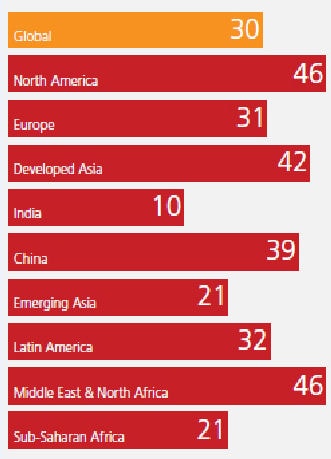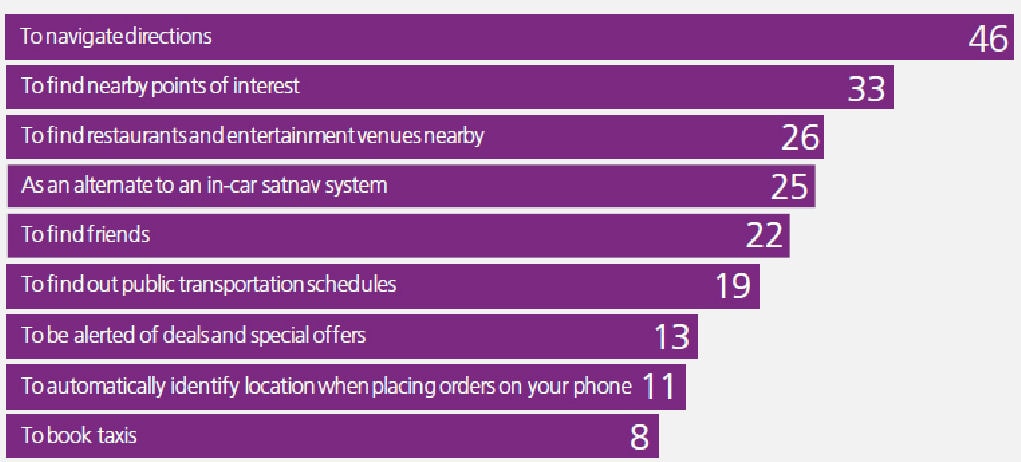When it comes to reaching consumers across the globe, mobile phones are unbeatable. According a recent study into worldwide mobile phone usage, in Senegal, for example, people on average only own two pieces of technology, yet 90 per cent of people own a phone. James Fergusson, global head, digital & technology practice at TNS, the company behind the research, says: “A place on a consumer’s mobile phone is becoming a powerful opportunity for marketers to influence behaviours, build loyalty and drive purchase.”
Smartphone usership

Source: The Mobile Life Study, TNS
With prepaid low-cost smart phones retailing at such competitive prices, the TNS study predicts that ownership of these sophisticated phones is set to explode. The study shows that already 30 per cent of those in developed Asian countries own smartphones. Fergusson points out that when consumers upgrade to smartphones, their interactions with their mobiles change: “The importance of voice calling recedes and a broad range of other mobile services take their place. With consumers using their phones for web browsing, social networking, mobile commerce, video and music, even controlling the home, it seems increasingly anachronistic that mobiles are referred to as phones at all.”
The challenge for brand owners is to communicate in the most appropriate way to meet a phone user’s needs. As Fergusson says: “consumers value products and solutions far more when they are delivered in the right time, in the right place and in a relevant context.” The study shows that 23 per cent of consumers would be interested in mobile advertising if it were related to something they were interested in, and 21 per cent said they would be interested if it related to a deal near their current location.
Reasons for using location-based services

Source: The Mobile Life Study, TNS
Location-based services provide brands with an opportunity to meet someone’s demand for a product, at the right time. Fergusson points out that consumers’ main reasons for using location-based services is because they are relevant to their immediate needs, so it is important that brands make sure they reach these consumers when they are open to hearing from them. For example, he says: “One third of consumers say that they love being able to get deals when they are near a store that they like.”
Methodology
These findings come from the Mobile Life study by research company TNS. This is an annual investigation in to the behaviours, motivations and priorities of the world’s mobile phone users. It is based on 48,000 conversations in 58 countries. More about the findings can be found at www.tnsglobal.com/mobilelife
PRmoment Leaders
PRmoment Leaders is our new subscription-based learning programme and community, built by PRmoment specifically for the next generation of PR and communications leaders to learn, network, and lead.
PRmoment LeadersIf you enjoyed this article, sign up for free to our twice weekly editorial alert.
We have six email alerts in total - covering ESG, internal comms, PR jobs and events. Enter your email address below to find out more:








